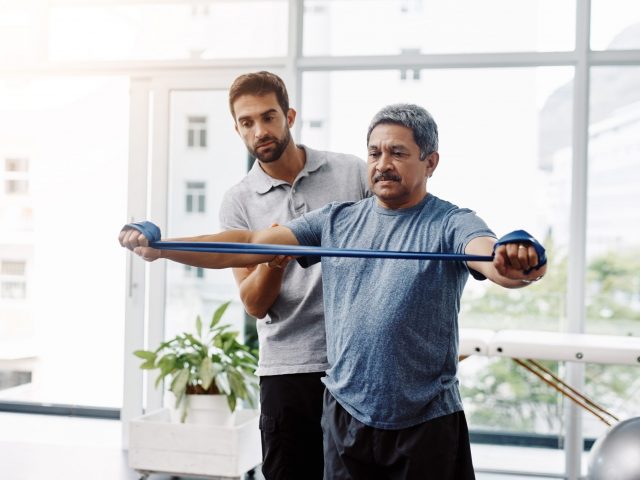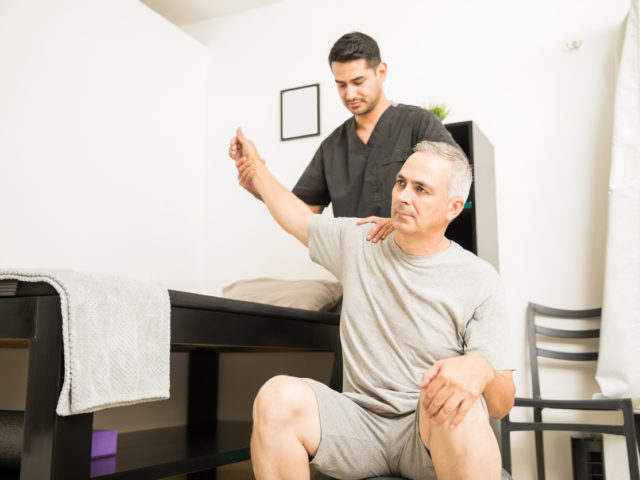Chronic or persistent pain can be difficult to cope with and control on a daily basis. In this post, I want to talk to you about 5 simple tips to help you better manage this situation – lots of encouragement!!!
Recommendation #1: positively cope with chronic or persistent pain and move forward.
Integrating chronic or persistent pain into your daily life does not mean giving up, but recognizing that you need to have a conscious approach to how to deal with your pain in a positive way.
Accepting it is like opening a door to new opportunities that will allow you to acquire important self-help and quality-of-life skills.
Recommendation #2: Learn to prioritize, plan and set goals.
Having an achievable and realistic plan of action and pacing your daily activities is one of the keys to success in managing your pain.
To do this, it is necessary to start by setting schedules and guidelines for your work and daily activities. Also, include your regular rest periods.
Prioritize the things that are most important to you and plan your day-to-day life with a list of things you want to do. Perhaps, you can consider writing a simple plan to be carried out in hours, days, or weeks.
For example:
Monday morning: write down the schedule of activities and breaks for the whole week.
Monday afternoon: go swimming.
Tuesday morning: go for a walk, rest in a cafeteria and then go shopping.
Tuesday afternoon: prepare some lunch/dinner and then relax for 20 minutes.

Recommendation #3: Include time for physical exercise and relaxation techniques in your day.
Many people who suffer from pain are reluctant or lazy to exercise for fear that it will be even more harmful. But this is not true. It all depends on how you are taught and how you do it. Practicing physical exercise, including regular stretching, reduces pain and the feeling of discomfort. At the same time, it prepares the body for other activities. Undoubtedly, strengthening your muscles will make you feel better.
If you suffer from persistent pain, remember that the muscles that you do not use much and end up “disconnecting”, stop performing their function and this in turn causes more instability and more pain. It’s a biting fish that bites its own tail. Talk to your physiotherapist about an individualized and specific program for you. Remember to start slowly and progressively increase the intensity of the exercises. This will help you to gradually increase your confidence level, as well as your muscle strength and joint mobility.
On the other hand, relaxation techniques are very important to help reduce stress and tension, lower blood pressure and control chronic pain.
Relaxation can consist of:
- Meditating.
- Doing guided relaxations.
- Deep breathing.
Other ways to relax may include:
- Reading a book.
- Listening to music.
- Dancing.
- Meeting friends for a drink.
- Going to the movies or a restaurant.
- Doing gardening chores.
Recommendation #4: Be patient with yourself.
Keep in mind that it may take weeks or months to feel improvement.
Do things at a slow but steady pace.
As you begin to feel better, you will begin to want to resume activities that you had put on hold because of the situation. Don’t be tempted to overextend yourself if you don’t want to relapse.
On the other hand, don’t hesitate to ask others for help when you need it. Don’t think of it as a sign of weakness, but rather of strength.
Recommendation #5: Have a plan for possible relapses
Is it realistic to think that you will never relapse? The answer is simply no!
There is nothing in life that follows an upward line, no stops, no relapses… If you think about it, everything that happens to us has ups and downs.
Developing a relapse action plan is good for the self-management of pain. In case you are not sure how to do it, remember that you can always ask your trusted physiotherapist. For example, don’t give up on taking care of yourself, take care of what you eat, your rest, and your social relationships. Seek to learn about how pain works and the human body in general and the brain in particular. You can also seek professional psychological help. Get redirected here to learn more tips on how to ease your chronic pain.


